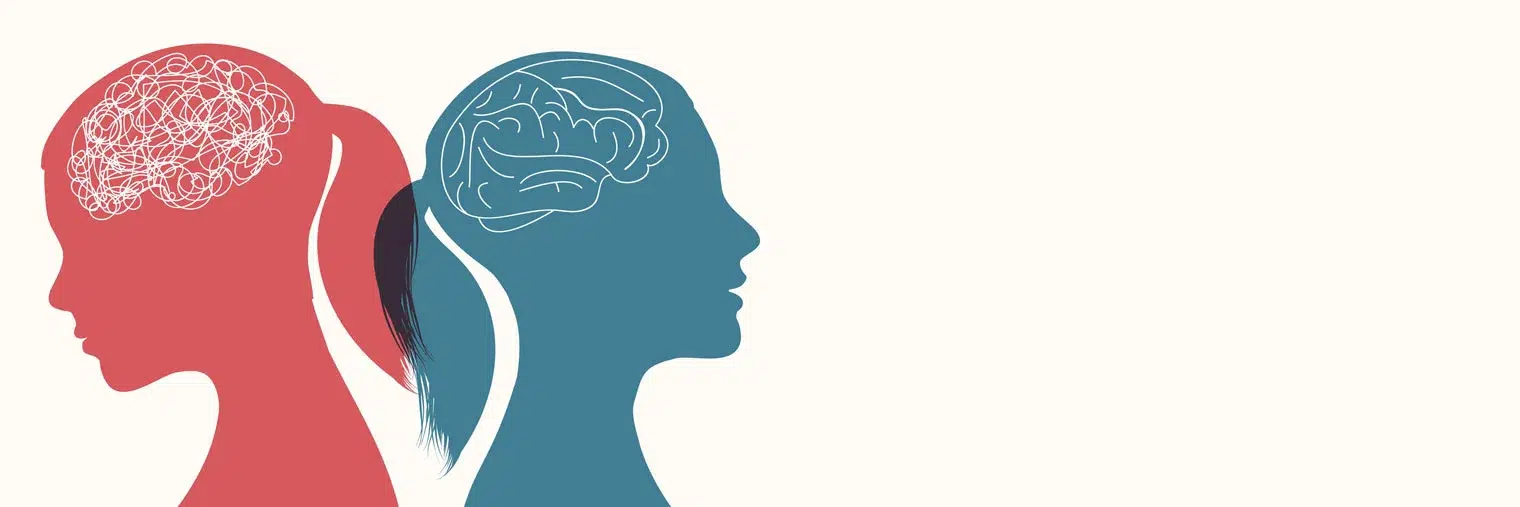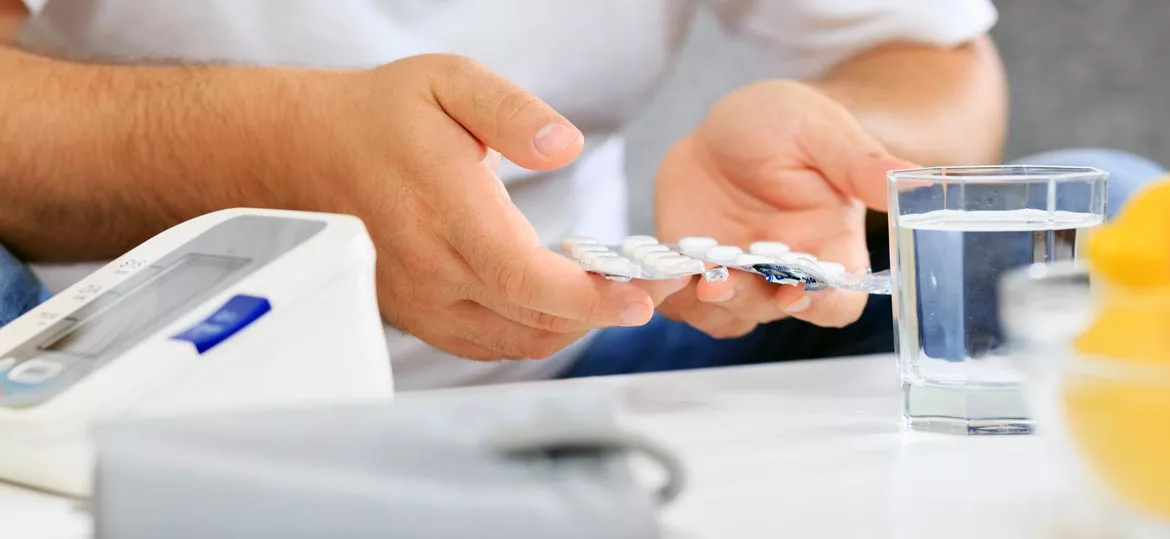One in every four individuals suffers from mental health issues once in their lifetime. People diagnosed with mental health issues are at a higher risk of developing a drug use disorder than the general population.
A dual diagnosis refers to the condition where a person is struggling with more than one disorder simultaneously. In most cases, it refers to people diagnosed with drug and substance addiction while battling co-occurring mental disorders.
Attain a healthy and productive life by seeking treatment for drug and substance abuse and co-occurring disorders.
Keep reading to find out about what makes effective dual diagnosis treatment centers in Phoenix or elsewhere, and how Emerald Isle is a provider of choice for dual diagnosis treatment in Phoenix!
Confidential Dual Diagnosis Assessment
Common Mental Health Concerns Associated with Addiction
Table of Contents
Over 20% of young American adults have a dual diagnosis. Some co-occurring mental health disorders are often diagnosed alongside drug and substance abuse disorders. In most cases, these behavioral or mood disorders are the underlying factor of addiction. Before addiction treatment, it’s essential to conduct mental health treatment or screening.
Common mental disorders associated with drug and alcohol addiction include:
Bipolar Disorder
Nearly half of people with bipolar disorder also have a substance abuse problem. As with any other mental illness, it can be tempting to use drugs to mask the mental condition. However, drugs only provide temporary relief.
Attention-deficit hyperactivity disorder (ADHD)
People with ADHD may be more motivated to abuse drugs to help cope with their symptoms. Most times, doctors prescribe stimulants to people with ADHD, which can eventually encourage a dangerous pattern of substance abuse.
Borderline Personality Disorder(BPD)
More than half of people with BPD have used drugs at some point in their lives to help them cope. Addiction, substance abuse and BPD mainly occur together.
Eating Disorders
Eating disorders is mainly linked to intense feelings of inferiority. People with such disorders use drugs to suppress appetite.
Depression
Many people suffering from depression often self-medicate with alcohol or other drugs. Depression worsens the problem because every crash from the high is usually devastating for people with a pre-existing depressive condition.
Schizophrenia
People battling schizophrenia often fall into delusional thinking and hallucinations. Schizophrenia and substance use disorders have overlapping effects making it difficult for doctors to diagnose this mental health disorder. When a person with schizophrenia uses a drug to self-medicate, they risk putting their health at risk.
Post-Traumatic Stress Disorder (PTSD)
A brain that battles PTSD produces fewer endorphins than a healthy brain. This will likely make the afflicted person turn to alcohol abuse to feel happy.
Obsessive Compulsive Disorder (OCD)
This disorder causes unnecessary obsessions and compulsions, such as exaggerated fear of germs and the constant need to clean. There are different ways that OCD manifests itself, and OCD-afflicted people often suffer from depression and anxiety resulting from involuntary behavior. As a coping mechanism, these people may end up using drugs.
24 Hour Dual Diagnosis Hotline
What are the Risk Factors for a Dual Diagnosis?
Certain factors may contribute to drug addiction and psychological disorders. These factors may include:
Genetics– Your genes can create certain dispositions that make you more likely to develop a psychological disorder that propels you into drug abuse. Genes influence the way drugs or substances interact with your body and brain.
Personality– A propensity for novelty seeking is one of the personality traits linked to drug or alcohol addiction and substance use.
Other risk factors include:
- Early exposure to drugs.
- High levels of stress.
- History of trauma.
Signs of a Dual Diagnosis
These signs vary significantly between people. Generally, symptoms depend on the type of drugs and the severity of the psychological disorder.
Symptoms include:
- Delusional thinking or hallucinations.
- Neglecting hygiene and health.
- Difficulty handling daily tasks and responsibilities.
- Avoiding social activities or events.
- Suicidal thoughts or behaviors.
- Impulsive behaviors.
- Poor performance at work or school.
Dual Diagnosis Addiction Treatment Options
The best way to treat dual analysis is to adopt an integrative approach, where the patients receive care for both conditions simultaneously. The current clinical solution requires both needs to be addressed.
A dual diagnosis treatment center such as Emerald Isle assesses how each condition affects the other and develops ways this treatment can be effective. Dual diagnosis programs differ depending on client needs, but here are a few common aspects:
Detoxification– Detoxification is one of the significant steps of addiction treatment programs. Inpatient detoxification treatment programs prove to be more effective for initial sobriety than outpatient programs. The clinical team may use tapering amounts of the drug or its clinical alternative to wean you off and minimize the adverse effects of withdrawal.
Inpatient Rehabilitation– A person addicted to drug use and experiencing mental health issues will benefit from inpatient services. An inpatient treatment center offers 24/7 health services, medication, and support to treat drug and alcohol addiction or underlying issues.
Medications– Certain medications are effective in mental health treatment. Medication-assisted treatment helps patients with withdrawal symptoms as they undergo recovery addiction treatment. However, medication management is critical for recovering addicts.
Psychotherapy– This is a significant part of an effective Fountain Hills addiction recovery treatment plan. Individual therapy helps patients with dual diagnoses learn how to manage and change ineffective thinking patterns that can increase the risk of substance use.
Supportive Housing– These integrated treatment centers help people who are newly recovered or trying to avoid relapse. Licensed professionals do not run these facilities. Conduct extensive research before choosing one.
Support Groups– Support groups offer a platform for recovering people to share their struggles, celebrate achievements, and find the best community resources to help them attain full recovery. Support group therapy also offers you an opportunity to form healthy friendships.
Choosing the right dual diagnosis treatment centers in Phoenix
Clients with a dual diagnosis are often treated for just one of their ailments all too often. Most treatment centers offer inpatient or intensive outpatient programs. Others have partial hospitalization programs with unique offerings like family therapy and equine therapy.
It is essential to select a treatment center with the treatment modalities to cater for your unique needs, and at Emerald Isle we take that into account by offering client-centered programs that are unique to your needs.
Here are some factors to look into when choosing a treatment center that offer dual diagnosis treatment:
- Find out if the dual diagnosis treatment facility is accredited and licensed.
- Do they have an aftercare program to help you avoid relapse?
- What’s their experience with your specific mental health conditions?
There are different approaches the dual diagnosis program may adopt, but here are some basics that you should look for:
- You’re involved in your dual diagnosis treatment decision-making process and setting goals.
- A dual diagnosis treatment program offers you primary education about your mental health disorder and related issues.
- You’re equipped with healthy coping skills to minimize dependency and strengthen your ability to cope with life challenges.
- The mental health treatment program addresses your substance use disorder and your other mental health issues.
Immediate Placement for Dual Diagnosis Treatment
Self-Help Tips for a Dual Diagnosis
Other than professional help, there are several self-help tips to help you manage your drug abuse and mental health problem. Your sustained sobriety depends on acquiring healthier coping mechanisms and making better decisions when handling life’s challenges.
Tip 1 # Learn to Manage Stress
A drug and substance abuse disorder often originates from misguided efforts to handle stress. Stress is an unavoidable part of life, so it’s crucial to develop healthy coping life skills to manage stress.
Identify your triggers and develop an action plan. Once you’ve identified the triggers, devise a plan to help ensure relapse prevention.
Tip #2 Connect with Others
A positive emotional connection with your family and friends is the quickest way to handle your anxiety. Schedule regular meetings with people who care about your recovery.
It’s also essential to stay connected with a support group.
Tip #3 Choose a Healthy Lifestyle
Physical exercise can help you relieve anxiety, reduce stress, and boost your mood. To reap maximum benefit, exercise for at least 30 minutes every day.
You can also practice relaxation techniques such as yoga and deep breathing to reduce symptoms of anxiety and stress. These techniques also increase feelings of emotional well-being.
The Dangers of Self-Medication
Self-medication involves using alcohol or drugs to manage the symptoms of mental illness. However, this approach can induce a substance use disorder and even worsen your mental illness.
Here are common scenarios of how some people self-medicate:
- Drinking alcohol to ease anxiety in social situations.
- Smoking marijuana to gain relief from grief or trauma.
- Using cocaine to boost your energy or motivation to complete specific tasks.
People battling behavioral or mental illness who resort to drugs end up consuming as much as it takes to achieve desired effects. Sadly, this coping mechanism is destructive. Over time, you’ll build a tolerance, requiring more of the drug each time to achieve the same result.
Reach out Now for Dual Diagnosis Treatment & Recovery
While some people become addicted to drugs before being diagnosed with a psychological disorder, others develop an addiction later. Whichever way it happened in your case, seek evidence-based help from Emerald Isle that can address both disorders simultaneously.
Call our warm and welcoming Admissions team today for more information on getting started on the path to health and happiness for your whole self at Emerald Isle Health & Recovery.



